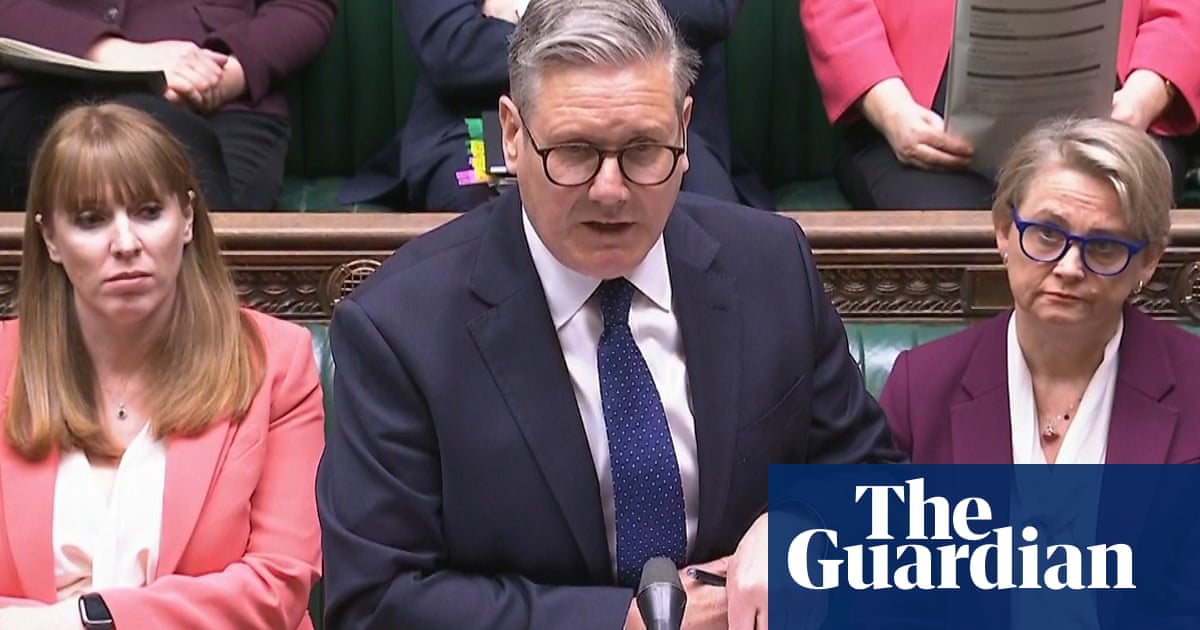Keir Starmer has urged MPs to “lower the temperature” in debating last week’ssupreme court rulingon gender, as he was challenged repeatedly on the subject by Kemi Badenoch during prime minister’s questions.
The Conservative leader, who took the place of her shadow equalities minister, Mims Davies, to respond to aCommons statementabout the ruling on Tuesday, used all her allocation of questions to push Starmer over what she said was his change of stance.
Badenoch began by asking the prime minister whether he accepted that by saying “it was the law that trans women were women, he was wrong”, in the light of the supreme court decision that “woman” in the Equality Act refers only to a biological woman.
She went on to challenge Starmer to apologise to Rosie Duffield, the former Labour MP who sits as an independent, with whom the prime minster previously disagreed on gender issues, and to guarantee a new term to the chair of the Equality and Human Rights Commission, Kishwer Falkner.
Starmer said he welcomed the supreme court ruling, saying it “brings clarity and it will give confidence to women”, but otherwise largely did not engage with Badenoch’s questions.
Sign up toFirst Edition
Our morning email breaks down the key stories of the day, telling you what’s happening and why it matters
after newsletter promotion
He instead criticised her culture war approach to the subject, saying his government would treat single-sex spaces as based on biological sex but also “ensure that trans people are treated with respect”.
He continued: “I do think this is the time now to lower the temperature, to move forward and to conduct this debate with the care and compassion that it deserves, and I think that should unite the whole house.”
After Badenoch continued her attacks, Starmer warned again of making the subject “a political football”, reminding MPs of a PMQs last year when the then prime minister, Rishi Sunak, used transgender peopleas the butt of a jokewhile being watched from the gallery by the mother of the murdered transgender teenager Brianna Ghey.
Sunak had, Starmer told Badenoch, diminished himself with this approach, and said he would never do this. In response, the Tory leader argued that she had herself been the target of abuse from Labour MPs over her views on transgender issues.
As the exchanges went on, Starmer mocked Badenoch for having done nothing to clarify the law while she was equalities minister, also raising comments by Robert Jenrick, the shadow justice secretary,who told a private meetinghe would try to ensure the Tories and Reform do not compete against each other at the next election.
After Badenoch ended by contrasting what she called “a Conservative party that stood up for common sense and a Labour party that bends the knee to every passing fad”, Starmer replied: “The truth is, it doesn’t really matter what the leader of the opposition says because nobody believes, none of them, that she’s going to lead them into the next election.”
